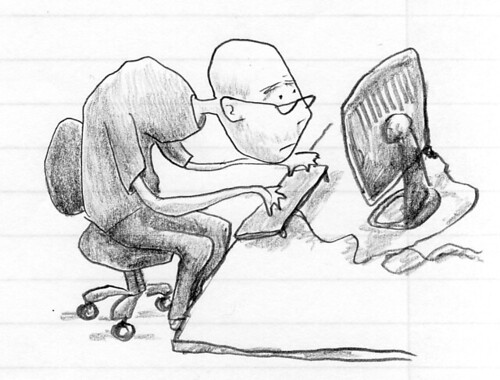(Please Note...I had been working on a huge blog about cell phones and how the wireless industry has steered so far away from functionality to "gadgetality." If you would like me to post it, please let me know...otherwise I will file it away.)I've read time and time again that I should update this blog more often if I want to maintain interest. Because a lot of other things are going on in our lives currently I have put the writing to a lower priority. Expect to see something around the first of the year.
In the meantime I have been trying to catch up on my reading. I have been reading 6 books below at the same time and all of them are very interesting!
(all reviews below taken from the web):
 Term Limits - Vince Flynn (Fiction)
Term Limits - Vince Flynn (Fiction)In a night of shattering brutality, three of Washington's most powerful and unscrupulous politicians have been executed with surgical precision. Their assassins, vanishing without a trace, have delivered a shocking ultimatum to the leaders of the American government: set aside petty, partisan politics and restore power to the people, or be held to deadly account. No one, they warn, is out of their reach -- not even the president. A joint FBI-CIA task force reveals that the killers are elite military commandos, but no one knows exactly who they are or when they will strike next. Only Michael O'Rourke, a former U.S. Marine and freshman congressman, holds a clue to the violence: a haunting incident in his own past with explosive implications for his country's future.... In a tour de force of action and suspense, Vince Flynn takes the ultimate American ideal -- a government of the people -- to a devastating extreme.
 Creating A World Without Poverty: Social Business And The Future Of Capitalism - Muhammad Yunnus (Non-Fiction)
Creating A World Without Poverty: Social Business And The Future Of Capitalism - Muhammad Yunnus (Non-Fiction)The winner of the 2006 Nobel Peace Prize outlines his vision for a new business model that combines the power of free markets with the quest for a more humane world - and tells the inspiring stories of companies that are doing this work today. Over the last two decades, free markets have swept the globe, bringing with them enormous potential for positive change. But traditional capitalism cannot solve problems like inequality and poverty, because it is hampered by a narrow view of human nature in which people are one-dimensional beings concerned only with profit. In fact, human beings have many other drives and passions, including the spiritual, the social and the altruistic. Welcome to the world of social business, where the creative vision of the entrepreneur is applied to today's most serious problems: feeding the poor, housing the homeless, healing the sick and protecting the planet. Creating a World Without Poverty tells the stories of some of the earliest examples of social business, including Yunus's own Grameen Bank. It reveals the next phase in a hopeful economic and social revolution that is already under way - and in the worldwide effort to eliminate poverty by unleashing the productive energy of every human being.
 Getting Things Done: The Art Of Stress-Free Productivity - David Allen (Non-Fiction)
Getting Things Done: The Art Of Stress-Free Productivity - David Allen (Non-Fiction)In today's world, yesterday's methods just don't work. Veteran coach and management consultant Allen shares the breakthrough methods for stress-free performance that he has introduced to thousands. He shows how to assess goals, relax, and stay focused.
 The Laws Of Simplicity: Design, Technology, Business, Life - John Maeda (Non-Fiction)
The Laws Of Simplicity: Design, Technology, Business, Life - John Maeda (Non-Fiction)Finally, we are learning that simplicity equals sanity. We're rebelling against technology that's too complicated, DVD players with too many menus, and software accompanied by 75-megabyte "read me" manuals. The iPod's clean gadgetry has made simplicity hip. But sometimes we find ourselves caught up in the simplicity paradox: we want something that's simple and easy to use, but also does all the complex things we might ever want it to do. In The Laws of Simplicity, John Maeda offers ten laws for balancing simplicity and complexity in business, technology, and design—guidelines for needing less and actually getting more. Maeda—a professor in MIT's Media Lab and a world-renowned graphic designer—explores the question of how we can redefine the notion of "improved" so that it doesn't always mean something more, something added on. Maeda's first law of simplicity is "Reduce." It's not necessarily beneficial to add technology features just because we can. And the features that we do have must be organized (Law 2) in a sensible hierarchy so users aren't distracted by features and functions they don't need. But simplicity is not less just for the sake of less. Skip ahead to Law 9: "Failure: Accept the fact that some things can never be made simple." Maeda's concise guide to simplicity in the digital age shows us how this idea can be a cornerstone of organizations and their products—how it can drive both business and technology. We can learn to simplify without sacrificing comfort and meaning, and we can achieve the balance described in Law 10. This law, which Maeda calls "The One," tells us: "Simplicity is about subtracting the obvious, and adding the meaningful."
 Dune - Frank Herbert (Fiction)
Dune - Frank Herbert (Fiction)Here is the novel that will be forever considered a triumph of the imagination. Set on the desert planet Arrakis, DUNE is the story of the boy Paul Atreides, who would become the mysterious man known as Muad’Dib. He would avenge the traitorous plot against his noble family—and would bring to fruition humankind’s most ancient and unattainable dream. A stunning blend of adventure and mysticism, environmentalism and politics, DUNE formed the basis of what is undoubtedly the grandest epic in science fiction.
 Outliers: The Story Of Success - Malcolm Gladwell (Non-Fiction)
Outliers: The Story Of Success - Malcolm Gladwell (Non-Fiction)Amazon Best of the Month, November 2008: Now that he's gotten us talking about the viral life of ideas and the power of gut reactions, Malcolm Gladwell poses a more provocative question in Outliers: why do some people succeed, living remarkably productive and impactful lives, while so many more never reach their potential? Challenging our cherished belief of the "self-made man," he makes the democratic assertion that superstars don't arise out of nowhere, propelled by genius and talent: "they are invariably the beneficiaries of hidden advantages and extraordinary opportunities and cultural legacies that allow them to learn and work hard and make sense of the world in ways others cannot." Examining the lives of outliers from Mozart to Bill Gates, he builds a convincing case for how successful people rise on a tide of advantages, "some deserved, some not, some earned, some just plain lucky." Outliers can be enjoyed for its bits of trivia, like why most pro hockey players were born in January, how many hours of practice it takes to master a skill, why the descendants of Jewish immigrant garment workers became the most powerful lawyers in New York, how a pilots' culture impacts their crash record, how a centuries-old culture of rice farming helps Asian kids master math. But there's more to it than that. Throughout all of these examples--and in more that delve into the social benefits of lighter skin color, and the reasons for school achievement gaps--Gladwell invites conversations about the complex ways privilege manifests in our culture. He leaves us pondering the gifts of our own history, and how the world could benefit if more of our kids were granted the opportunities to fulfill their remarkable potential.
Here is my progress on reading all of these as of 10:18am on December 2, 2008:


 After you submit the required materials you have to wait. Most sites say "no phone calls" so you can't call to see if they received your resume and cover letter. I find myself checking their employment page hoping that I get an email or a phone call before the posting disappears. On a daily basis I repeat this process...it can be pretty depressing.
After you submit the required materials you have to wait. Most sites say "no phone calls" so you can't call to see if they received your resume and cover letter. I find myself checking their employment page hoping that I get an email or a phone call before the posting disappears. On a daily basis I repeat this process...it can be pretty depressing.




